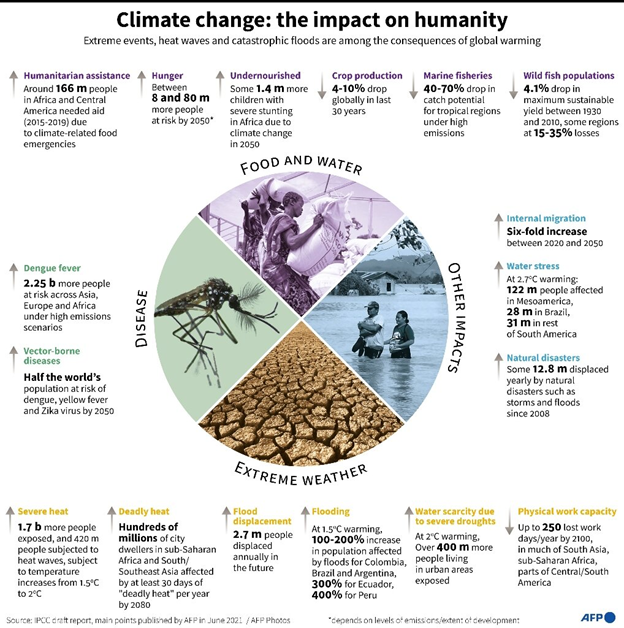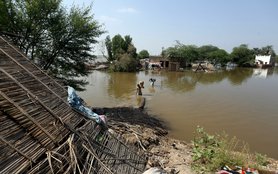It’s science v. politics this week, as a damning new report on climate change underscores the need for urgent action, at the same time that the US Supreme Court considers whether to disempower the agency charged with protecting the environment. And Congress is held captive by one determined Senator.
Have you seen those t-shirts with the catchy slogans? Your hometown v. Everybody? [Insert your city or state here.] Simple. Stylish. And confounding. Is it a rally cry? A call to arms? Who is everybody and why are they against our city or state?
Today, at the US Supreme Court (SCOTUS), activists should be wearing West Virginia v. Everybody shirts-but not for any reason that actual West Virginians should want to rally around.
Rather, it’s a grim day with potentially dire consequences.
SCOTUS will be hearing arguments in the consolidated cases known as West Virginia v. EPA, which will more or less decide whether the power to set and regulate greenhouse gas emissions sits with Congress only, or can be delegated to the Environmental Protection Agency (EPA) under the Clean Air Act.
Wait, what? Yes, you read that correctly. At a time when the world is already at 1.2 degrees above pre-industrial levels--resulting in megadroughts, rising sea levels, and intense wildfires on the US mainland (never mind effects in more vulnerable countries)--SCOTUS is debating whether an agency charged with protecting the environment can regulate pollution of the environment.
On the side against the EPA, you have red states, utility companies and fossil fuel interests; they have argued that the 2015 Clean Power Plan (which never went into effect) would have allowed the EPA to make sweeping changes to the existing power grid in favor of cleaner energy (instead of just regulating individual sources like new compressor stations). Further, they maintain that it is Congress that should wield this kind of power.
As an excellent blog from the Union of Concerned Scientists explains, the SCOTUS ruling could hamper EPA’s ability to regulate not only greenhouse gases, but also toxic chemicals and engineered organisms.
They are also effectively arguing about whether any federal agency should have the power to regulate if not explicitly charged to do so by Congress. So, for example, as heat waves increasingly affect the workplace, OSHA could be stymied in its efforts to create heat-protection standards for workers.
A new report sounds a very loud alarm on climate change, humans, and the planet
Setting aside that this case should be moot (as that plan never went into effect), the Justices should take notice of this report, released today, that details the very real impacts of climate change--rather than debating the hypothetical power the EPA has no plans to utilize.
By the time the Justices are set to hear arguments in DC, the Intergovernmental Panel on Climate Change (IPCC) will have held its press conference to disseminate its research report highlighting some undeniable truths about the effects of climate change on humans and the planet. More than 270 scientists from 65 countries contributed to the AR6 Climate Change 2022: Impacts, Adaptation and Vulnerability WG II report (they are scientists, not brand marketers), which references 84,000 scientific papers. The IPCC--the UN body for assessing the science related to climate change--will summarize the associated consequences that are already happening across the world (such as extreme weather disasters increasing until at least the 2060’s).
Low-income and BIPOC communities are experiencing these changes most acutely, experiencing biodiversity loss, crumbling infrastructure, and forced displacements. While “adaptation”--climate-speak for the need to find ways to live with irreversible changes--can be effective, it is severely underfunded. Only a fourth of all climate finance to vulnerable countries is designated for adaptation, and the agreement at COP26 to double adaptation finance to $40 billion by 2025 falls far short of the need (without even getting into how much is direct grant aid and not loans).
This brings us back to DC, where US lawmakers continue to stall on passing meaningful climate legislation or funding, with particular attention on one increasingly polarizing Democratic Senator from West Virginia.
The FY 2022 budget, which technically ended in October of last year, is still waiting to be passed. If and when it passes, that budget would be the first time the US has contributed to the world’s largest multilateral fund for adaptation, the Green Climate Fund, in nearly a decade. Also stalled (or “dead,” according to that same Senator) is the Build Back Better legislation, which includes $550 billion for climate priorities.
With climate provisions on life support, it’s highly unlikely that the US will achieve its long-term goals for the Paris Agreement.
Therefore, if the Supreme Court guts the EPA, while Congress fails to pass any meaningful funding for climate change, we’re facing some almost certainly fatal results. Not only will the US lose any credibility it still has with global leaders, it will be sealing its own fate and the world’s: as the 2nd largest emitter of greenhouse gas in the world, we will have failed to adapt to a world changing before our eyes.
As the US stumbles to fulfill its climate commitments while the world burns, it really is West Virginia v. Everybody.
No offense, but I’m rooting for everybody.



